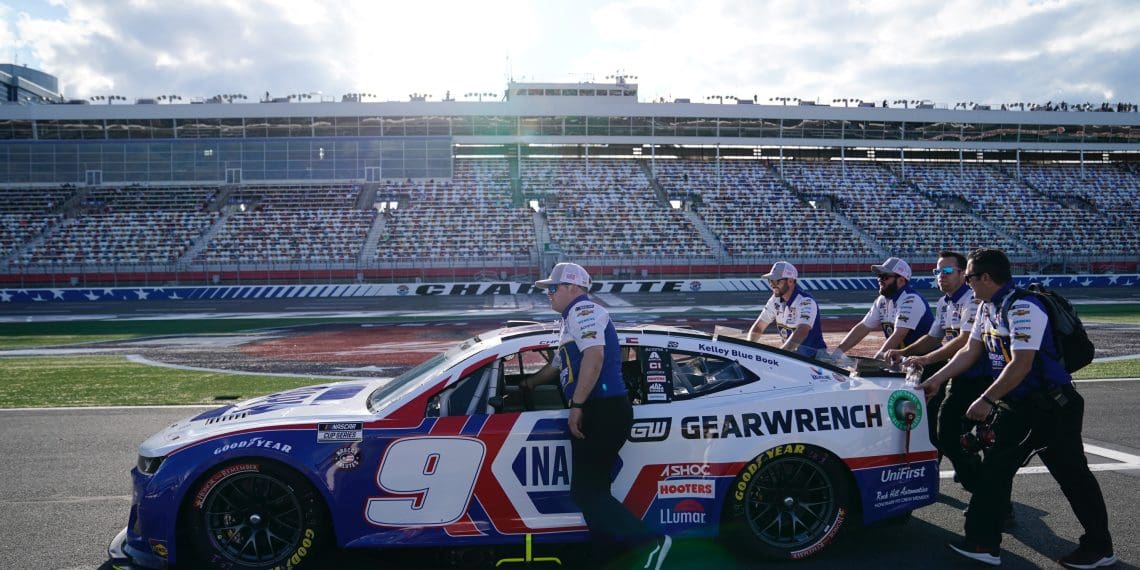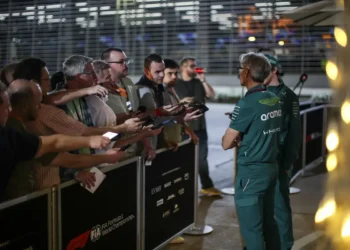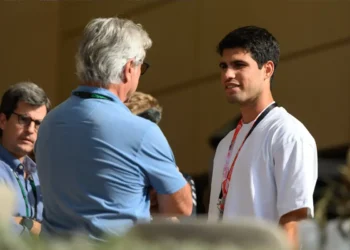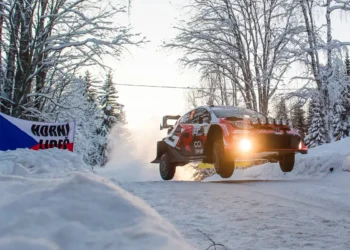For years, NASCAR’s start-and-park strategy—where cash-strapped teams entered races only to complete a handful of laps before heading to the garage—was both a lifeline for struggling operations and a frustrating sideshow for fans. Critics labeled it a stain on the sport, while proponents saw it as an economic necessity. But when NASCAR introduced the charter system in 2016, the practice all but disappeared from the Cup Series, marking the end of one of NASCAR’s strangest eras.
Yet, as the charter system finds itself at the center of a fierce antitrust lawsuit and broader debates about its fairness, its role in eliminating start-and-park deserves recognition. Here’s how one of NASCAR’s most controversial policies eradicated one of its most polarizing practices.
The Era of Start-and-Park: Survival or Sideshow?
The concept of start-and-park was born out of desperation. Operating a NASCAR team requires a hefty financial investment, from engine costs to travel logistics. For low-budget teams without sponsors, simply completing a race was often unfeasible. But by qualifying for a race and pulling out early, teams could collect guaranteed prize money while avoiding the expenses associated with tires, fuel, and prolonged wear on their equipment.
For these teams, the math was undeniable. In 2009, Joe Nemechek earned over $64,000 in prize money at a Cup Series race despite completing just a few laps and finishing 41st. By comparison, Dexter Bean, who ran the entire race and finished 36th, earned only $275 more. For some, start-and-park wasn’t just a strategy; it was survival.
However, the practice often bordered on the absurd. Fans grew weary of cars pulling off the track with no intention of competing, and the spectacle occasionally devolved into farce. In a notorious 2010 incident, start-and-park teams engaged in a bizarre game of “garage chicken,” with drivers taking turns entering and exiting the pits to avoid being the first car to retire—a distinction that carried the burden of post-race inspections.
Meanwhile, stories of manipulation abounded. In the 2003 Truck Series finale, Ultra Motorsports fielded extra trucks, one of which caused a wreck that conveniently eliminated a rival title contender, sparking accusations of unsportsmanlike conduct.
By the 2010s, start-and-park had become a lightning rod for criticism, symbolizing NASCAR’s struggle to balance economic realities with competitive integrity.
Enter the Charter System: A Game-Changer
NASCAR introduced the charter system in 2016 to stabilize team finances and create a more sustainable business model. The system guaranteed 36 chartered teams a spot in every race, ensuring consistent income regardless of performance. It also reduced the field size from 43 to 40 cars, limiting opportunities for non-chartered teams to compete.
For start-and-park operations, the charter system spelled doom. Without a charter, teams had to vie for one of just four open spots on the grid—a far cry from the days when a full field guaranteed a payout. Even if they qualified, the reduced payouts for non-chartered entries made start-and-park financially unviable.
“It became clear that if you weren’t going to run the whole race, there wasn’t much point in showing up,” said a former team owner who relied on the strategy. “The charter system changed the game completely.”
NASCAR’s Broader Crackdown
The charter system didn’t act alone in phasing out start-and-park. NASCAR had been tightening the screws on the practice for years:
- Prize Money Restructuring: NASCAR restructured payouts to discourage early retirements.
- Inspection Rules: The first car to drop out of a race was automatically sent to NASCAR’s R&D Center, adding scrutiny and inconvenience for habitual parkers.
- Shrinking Fields: The Xfinity and Truck Series reduced their maximum field sizes, leaving fewer spots for start-and-park entries.
By the late 2010s, start-and-park had largely vanished from the Cup Series. While a few holdouts remained in the lower tiers, their days were numbered.
The Legacy of Start-and-Park
Start-and-park will forever remain a polarizing chapter in NASCAR history. For low-budget teams, it was a survival mechanism that kept them in the game. For fans and critics, it was a blemish on the sport’s credibility.
But its demise, largely driven by the charter system, has ushered in a new era of competition. Today, NASCAR races feature fewer “field fillers” and more genuine contenders, a shift that has bolstered the sport’s integrity.
Charters Under Fire
While the charter system has been effective in stabilizing team finances and eliminating start-and-park, it’s not without controversy. Critics argue that the system locks out potential new entrants and consolidates power among a small group of teams, stifling competition. This has led to legal challenges, including an ongoing antitrust lawsuit from 23XI Racing and Front Row Motorsports.
Despite its flaws, the charter system’s impact on NASCAR’s competitive landscape is undeniable. By making start-and-park economically unsustainable, it has helped restore the spirit of full-throttle competition that defines stock car racing.
The End of an Era
The charter system’s legacy is still evolving, but its role in ending start-and-park deserves recognition. For fans and teams alike, the practice’s demise represents a victory for NASCAR’s credibility, proving that even the sport’s most contentious policies can deliver unexpected benefits. As the debate over charters continues, one thing is clear: NASCAR’s future looks brighter without start-and-park.










